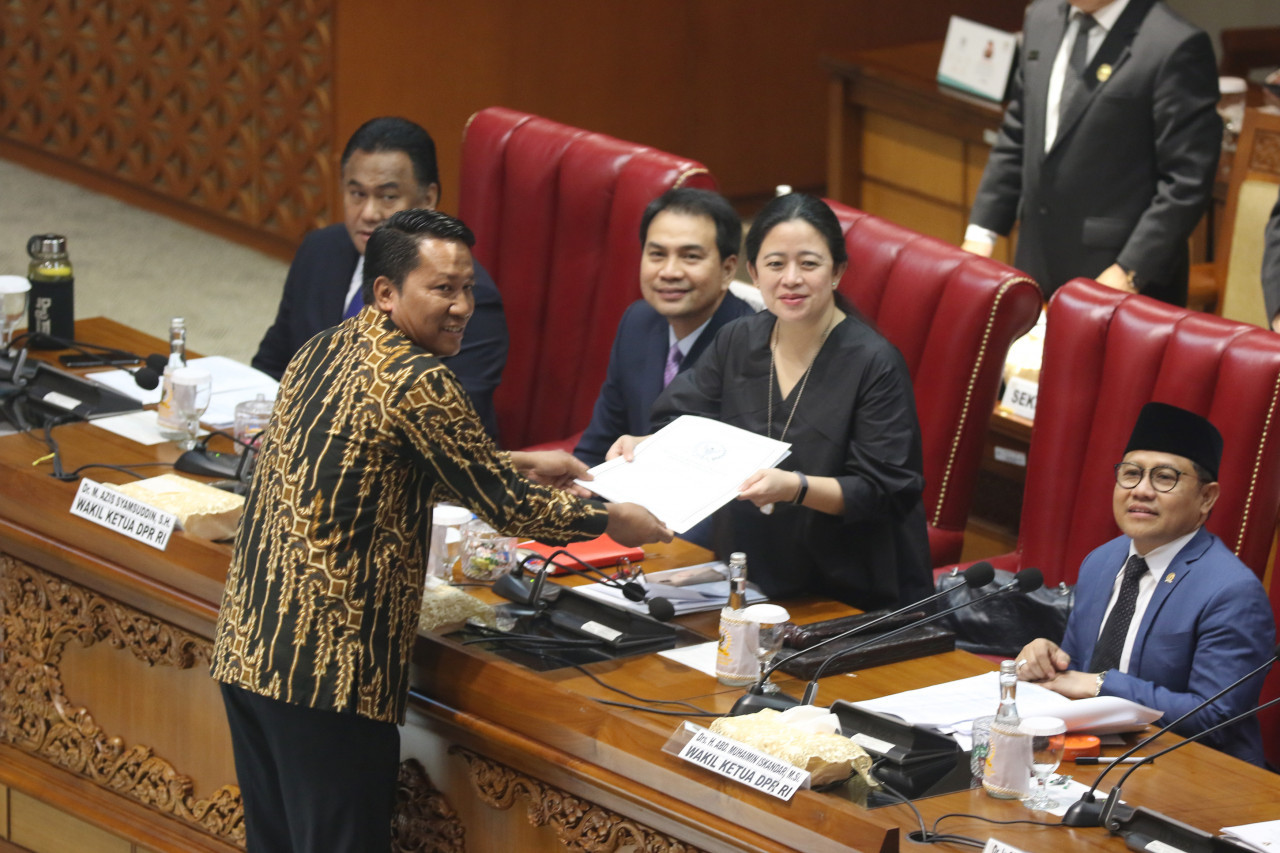Popular Reads
Top Results
Can't find what you're looking for?
View all search resultsPopular Reads
Top Results
Can't find what you're looking for?
View all search resultsPDI-P, Gerindra slammed for lodging ‘vested interest’ bills
Change text size
Gift Premium Articles
to Anyone
L
egislative watchdog Indonesian Parliament Watch (Formappi) has criticized the country’s two biggest political parties, the Indonesian Democratic Party of Struggle (PDI-P) and the Gerindra Party, for proposing two bills that it considered to be largely self-serving in the midst of the COVID-19 crisis.
Formappi researcher Lucius Karus said the Pancasila Ideology Guidelines (HIP) bill – proposed by PDI-P lawmaker Rieke Diah Pitaloka – and the Constitutional Court law revision bill – proposed by Gerindra lawmaker Supratman Andi Agtas – were unnecessary.
"This year is a strategic time to pass vested interest bills because in the coming year the lawmakers’ focus would be on elections-related bills,” he told The Jakarta Post on Thursday.
On Tuesday, the government rejected the HIP bill, which aims to regulate the values of the Pancasila ideology and the functions of the Agency for Pancasila Ideology Education (BPIP) – where the PDI-P chairwoman and former president Megawati Soekarnoputri serves as the steering committee head – following outcry from members of the public questioning the urgency of it and some of its contentious articles.
The Constitutional Court Law revision bill, however, remains on the table. Experts and civil society groups have questioned the motives behind the bill, which they said might undermine justices' independence and discourage the public from exercising their right to challenge controversial laws.
Supratman, the bill's sole initiator, said the House was waiting for President Joko "Jokowi" Widodo to issue a presidential letter to continue deliberation of the bill.
The draft bill raises the minimum age of justices from 47 to 60 years old and scraps justices’ term limits. The prevailing 2011 Constitutional Court Law only allows justices to serve a maximum of two five-year terms.
Lucius said the bill might be an attempt by Gerindra to increase its influence on the court, noting the court had previously rejected party chairman Prabowo Subianto’s legal challenge on the 2019 presidential election results.
He added that social distancing measures enacted to curb the spread of COVID-19 had made it difficult for people to organize protests, and thus decrease the amount of public pressure on lawmakers.
“The public could air their concerns on social media but this will not necessarily push the lawmakers and disrupt the process,” Lucius said. “Take the revised Mining Law for example. The House didn’t hesitate to approve it despite the outcry.”
He said the restrictions, coupled with the public’s general apathy, could lead to lawmakers taking advantage of the situation.
“The lawmakers may think they have the upper hand to do whatever they want,” he said.










